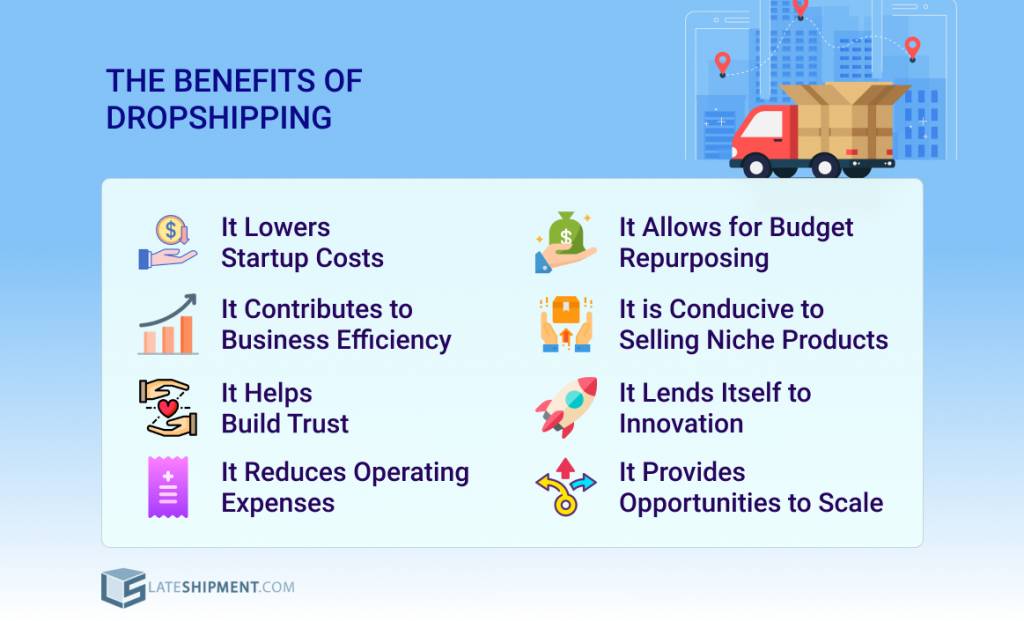The Benefits of Drop Shipping: A Comprehensive Overview
In recent years, drop shipping has emerged as a popular business model, particularly for entrepreneurs and small businesses. This retail fulfillment method allows store owners to sell products without maintaining inventory, significantly lowering the barriers to entry in the e-commerce industry. Here are some key benefits of drop shipping:
1. Low Startup Costs
One of the most significant advantages of drop shipping is the minimal upfront investment required. Traditional retail businesses often need substantial capital to purchase inventory. In contrast, with drop shipping, you only purchase a product when you have already made a sale and received payment from the customer. This reduces the financial risk associated with starting a business.
2. Reduced Overhead Costs
Without the need to manage or store inventory, drop shipping reduces overhead costs significantly. There is no need for a warehouse or physical storefront, and associated expenses like rent, utilities, and security are eliminated. The primary costs involve maintaining a website and marketing your products.
3. Wide Product Selection
Drop shipping allows you to offer a wide variety of products without worrying about managing stock. You can list a broad range of items in your online store, and your suppliers will handle the inventory and shipping. This flexibility enables you to quickly adapt to market trends and customer demands without the constraints of physical inventory.
4. Scalability
Scaling a drop shipping business is more straightforward than traditional retail. Since you don’t need to manage or purchase inventory, your operational efforts focus mainly on marketing and customer service. As your sales grow, your suppliers handle the logistics of shipping increased orders, making it easier to expand your business.
5. Location Independence
Drop shipping businesses can be run from virtually anywhere with an internet connection. This geographic flexibility means you can manage your business from home, while traveling, or from a remote office. The primary requirement is maintaining communication with suppliers and customers.
6. Diverse Product Testing
Because there is no need to purchase inventory upfront, drop shipping allows you to test new products with minimal risk. You can list new items in your store and gauge customer interest before making any significant investment. If a product doesn’t sell well, you can simply remove it from your listings.
7. Focus on Marketing and Sales
With the logistics of inventory management and shipping handled by your suppliers, you can concentrate your efforts on marketing and sales strategies. This focus can enhance your business's growth potential, allowing you to optimize your website, improve customer experience, and implement effective marketing campaigns.
8. Easier to Manage
Running a traditional retail business involves multiple layers of management, including inventory control, warehousing, and shipping. Drop shipping simplifies these processes, reducing the complexity of managing an online store. You handle the customer-facing aspects, while your suppliers take care of the back-end logistics.
Conclusion
Drop shipping offers numerous advantages, particularly for new entrepreneurs looking to break into e-commerce with limited resources. By lowering the barriers to entry and reducing operational complexities, it presents a viable pathway to starting and scaling an online retail business. While it comes with its own set of challenges, the benefits make it an attractive option for many aspiring business owners.
Whether you're looking to diversify your existing retail operations or start a new venture from scratch, drop shipping provides a flexible and cost-effective business model worth considering.




No comments yet
Be the first to share your thoughts!